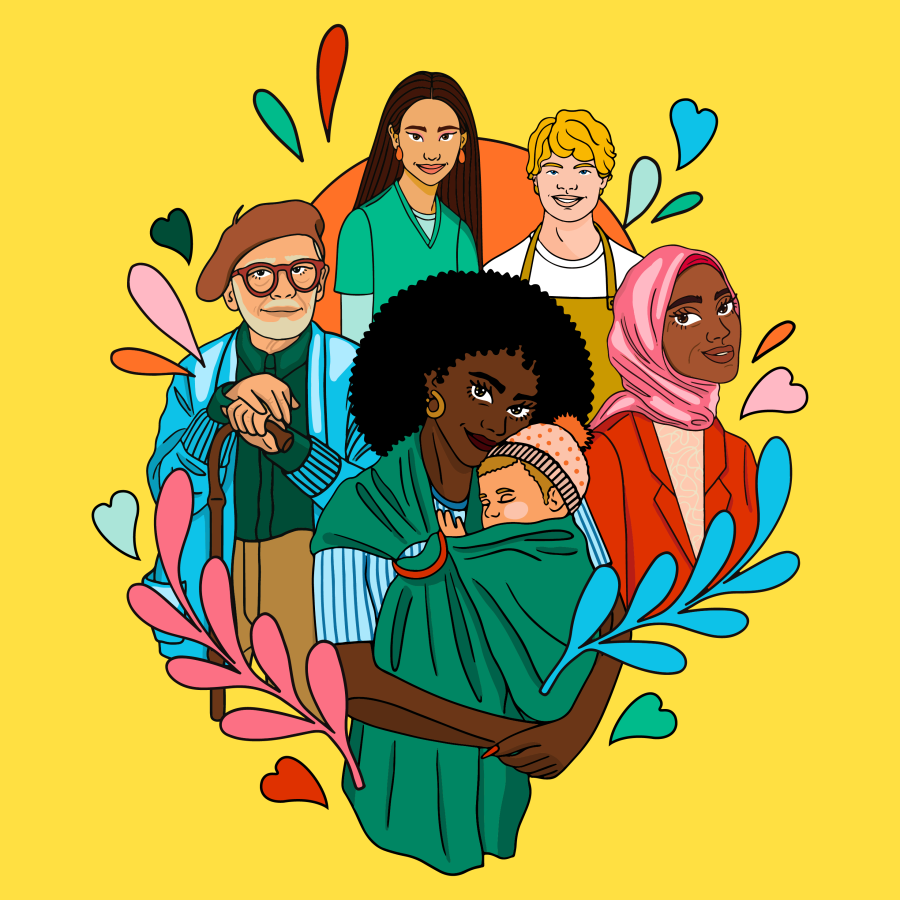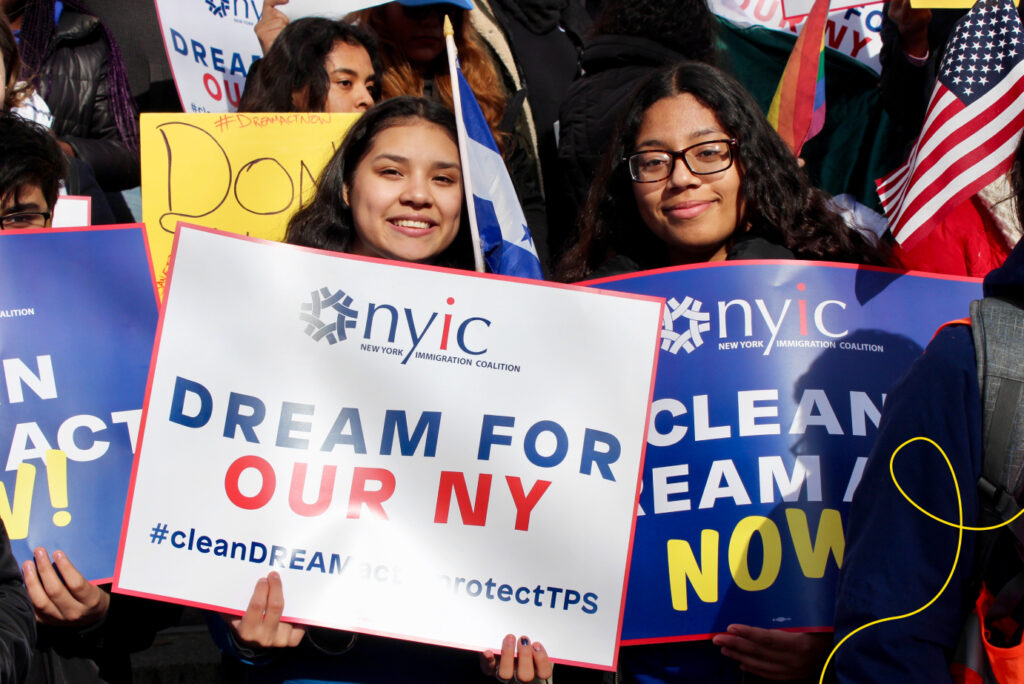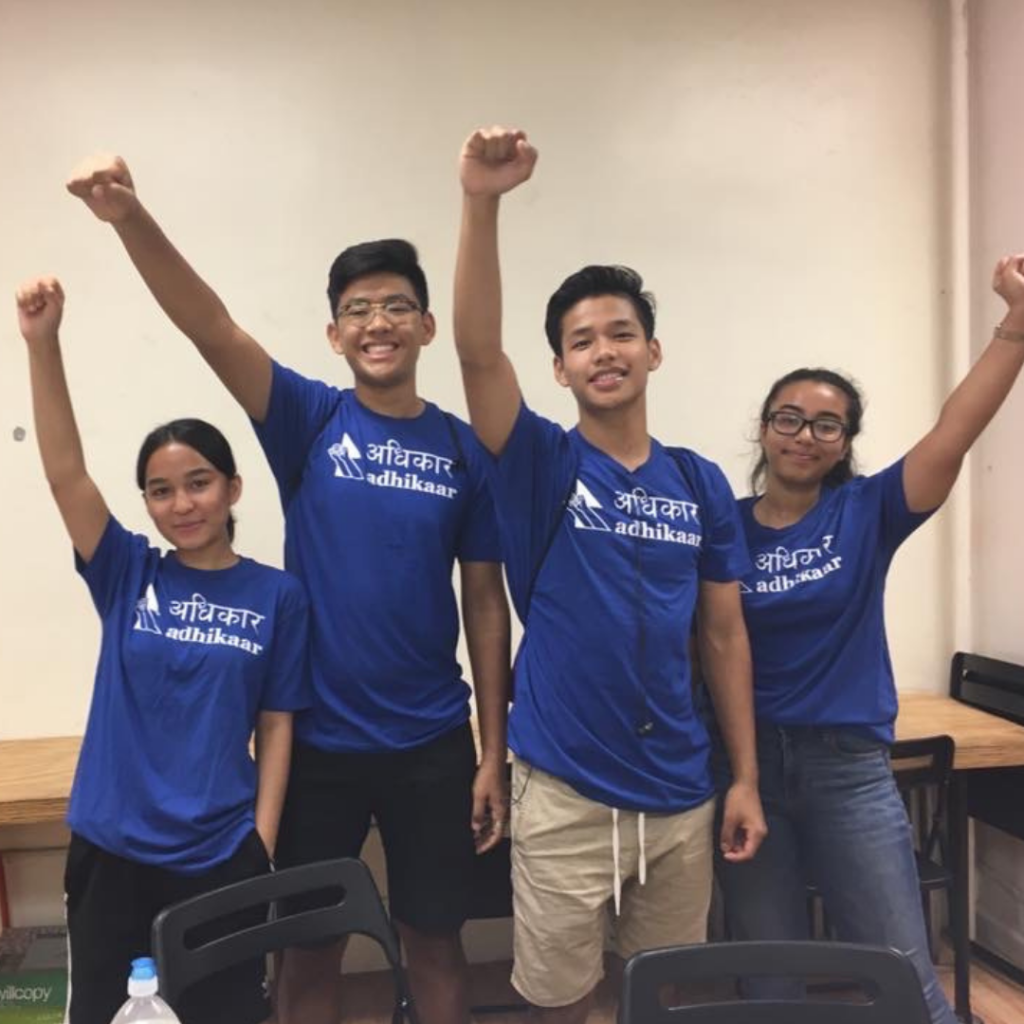Amid a deepening affordability crisis, New York faces a shortage of health care workers, one of the country’s largest aging populations, and expensive child care. There has never been a greater urgency to invest in our care infrastructure—and in caregivers themselves.
“There are only four kinds of people in the world: those who have been caregivers, those who are currently caregivers, those who will be caregivers, and those who will need caregivers.”
“Quality, affordable care is essential for all New Yorkers, whether they’re older adults living alone, parents navigating disability services, or members of the sandwich generation, simultaneously caring for children and aging relatives,” said Irfan Hasan, The Trust’s vice president for programs and grants.
The Trust has a history of supporting older New Yorkers, families, and care providers. In the last few decades, we have worked with nonprofits to improve caregivers’ wages, bring universal pre-K to city families, increase funding for older adult services, and improve labor laws. But more work lies ahead.
A roadmap for universal child care
Studies show that children who attend high-quality child care programs have better long-term health, education, and employment outcomes. For parents, and particularly mothers, access to child care often determines whether and to what extent they participate in the labor force.
But care for children is the largest monthly expense for many New York families. Across the state, families with just one child spend an average of 18 percent of their income on child care; in New York City, that figure increases to 25 percent. These costs, combined with a lack of affordable housing, are driving record numbers of young families to leave the city or relocate to more affordable states.
Trust grantee New Yorkers United for Child Care estimates that a full-scale universal child care program in New York State would cost $12 billion—about 6 percent of the state’s total budget. But the cost of parents leaving the workforce or moving out of state is much higher. In 2022, when caregiving responsibilities during the pandemic led parents to leave their jobs and families to relocate, New York City alone lost an estimated $23 billion in economic output, $5.9 billion in disposable income, and $2.2 billion in tax revenue.
“Universal child care would be a triple win for New Yorkers,” said Leigh Ross, program director at The Trust. “In addition to benefiting children, it would help more families stay in the city, improve our economy, and address gender inequities.”

Parents and allies mobilize
In 2023, when local organizer Rebecca Bailin founded New Yorkers United for Child Care to advocate for free, high-quality care for all New York children ages 5 and under, The Trust provided seed funding to help her young organization galvanize and train local parents to join the campaign.
The nonprofit has ensured universal child care is a visible priority for New York legislators. It made more than 70 media appearances in 2024 and released a five-year plan for achieving free universal child care across the state. The campaign also helped restore $112 million in funding for the city’s 3-K programs.
“Working- and middle-class people feel like we’re disappearing from the landscape of the city.”
“We need to organize parents and would-be parents to make sure that our elected leaders know that we are paying attention,” said Bailin, who is applying the lessons she learned in a prior role organizing transit riders with the Riders Alliance (also a Trust grantee).
Parent-leader Edgar Alfonseca and his wife, Suzanne Elgendy, live with their two-year-old son in Forest Hills, Queens, and work full-time as civil servants. Elgendy also works as an adjunct professor. Their search for child care has been riddled with obstacles.
“We’ve had to leave our neighborhood to get child care that meets our needs in terms of budget and hours, which means one of us has to add an extra 30 minutes to our commute,” Alfonseca said.
In addition to the challenges it poses for his own family, Alfonseca is concerned about how the issue contributes to other New Yorkers’ growing sense of alienation.
“Over the last few years, I’ve had a lot of close friends with kids move to different states. The child care crisis is shifting the landscape of the city from a place where people thought they could raise a kid to a place where only the hyper-wealthy can,” he said. “Working- and middle-class people feel like we’re disappearing from the landscape of the city.”
Investing in “the bedrock of our community”
“While parents struggle to pay for child care, providers often operate on razor-thin profit margins and struggle to attract and retain qualified staff,” said Lauren Perkins, a Trust program director for Westchester. “Many don’t have the budget to offer competitive wages for these demanding jobs.”
To address this issue in New York City and Westchester, The Trust partners with All Our Kin, a nonprofit that trains and supports family child care providers serving chronically under-resourced communities. It provides financial literacy, licensing, and marketing support that has helped business owners achieve average income increases of 20 to 25 percent.
“Child care providers are the bedrock of our community, and there needs to be deeper public investment to reflect their value,” said Erica Buchanan, vice president of the nonprofit’s New York programs. “Some providers are working 14-plus hours a day, juggling care, education, and the pressures of running a business—and they’re still struggling to earn a reasonable income.”
Trust donors like Judy Esterquest recognize the importance of investing in high-quality centers that lay a strong foundation for the next generation.
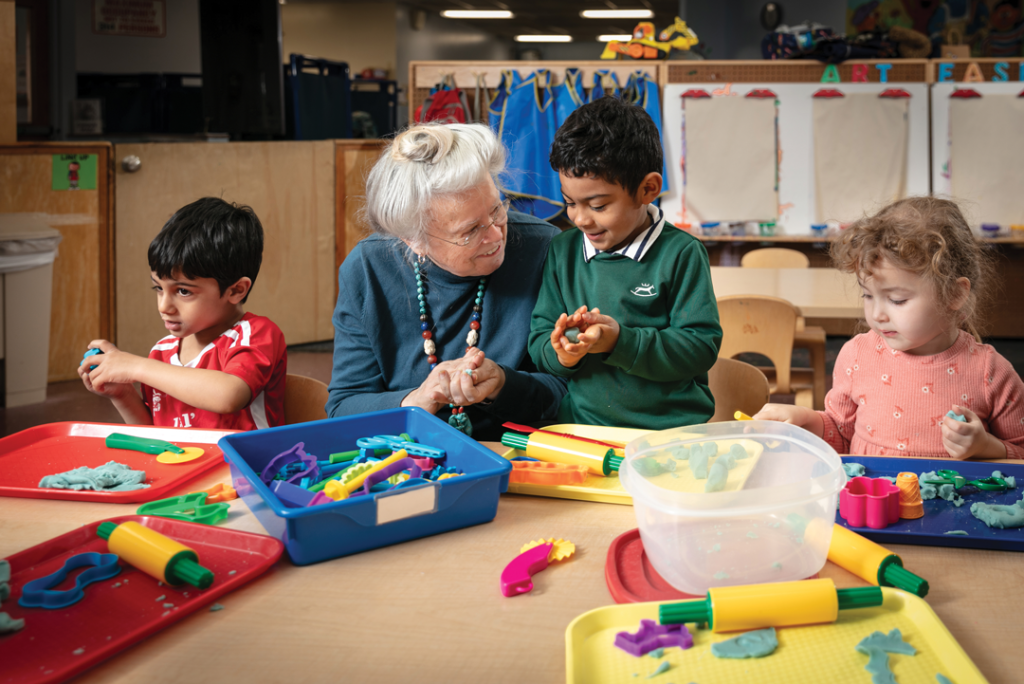
In 2015, Esterquest set up a donor-advised fund at The Trust’s Long Island office in memory of her late husband, Michael J. Fleming. She uses her fund to support Children’s Greenhouse, the child care center their daughter, Rebecca, attended, which serves students and employees at Nassau Community College, where Fleming was on the faculty.
“I knew what I wanted, but not how to do it. Marie Smith and David Okorn from The Trust’s Long Island office gave me so many helpful suggestions and recommendations,” Esterquest said. “They made my options and choices really clear.”
When Esterquest began planning her estate, she considered her attorney’s advice to start a private foundation. After weighing her options, she decided a legacy fund at The Trust, where she already had a donor-advised fund, would better serve her giving goals. Her fund will support the Children’s Greenhouse in perpetuity in her name. And if the center ever closes, The Trust will use her fund to support similar programs.
“After working with The Trust for almost 10 years, I know I can trust them to understand and honor my charitable intentions. They are not looking for loopholes,” Esterquest said.
Supporting caregivers of people with disabilities
Lisa LePage raised her daughter, Lauren, who has cerebral palsy and developmental disabilities, in Harrison, NY. LePage sees family caregivers of children with disabilities as a “hidden population” who lack support and resources and often feel isolated.
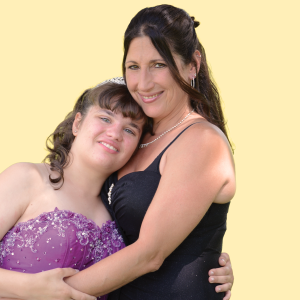
When she was planning her estate, LePage decided to include lasting support for these caregivers—especially those with fewer resources.
“You often have to choose between having a full-time job and not getting all the necessary services or sacrificing that income and getting the services—which is what I chose to do,” she said. “But I was fortunate enough where I could do that. A lot of people aren’t. They have to survive, and it’s not right that they can’t have a better life because the funding isn’t there.”
After LePage’s attorney recommended The Trust, she left a bequest in her will to create a fund dedicated to improving the lives of people with developmental or intellectual disabilities in Westchester.
Families connect with early intervention
Early diagnosis and services for children with disabilities can make a difference in everything from their ability to meet developmental and academic milestones to their emotional well-being and general attitude towards school.
While a federal mandate theoretically provides access to early intervention evaluations and services for children with disabilities, the reality is far different. Many families do not have the time or support to complete complex applications, get the appropriate evaluations, or advocate for the services their children need.

The Trust has partnered with INCLUDEnyc, a leading nonprofit for families of children with disabilities, since its founding in 1983. A recent grant from The Trust is helping the nonprofit offer workshops, informational videos, community outreach, a help line, and other support to families seeking services.
“Early intervention is so critical. So many of our families don’t know they need us until they really need us,” said Cheryelle Cruickshank, INCLUDEnyc’s executive director. “That’s why we want to be a resource for any family with children with disabilities, whether known or suspected, so they can develop their own advocacy skills and even support other families in their communities.”
Connecting across cultural barriers
“We strive to make sure our families know that they are not alone, there’s no shame, and there’s a community that understands where they are coming from that can help.”
“We strive to make sure our families know that they are not alone, there’s no shame, and there’s a community that understands where they are coming from that can help,” said Mitchel Wu, director of Queens community services for the Chinese-American Planning Council, the country’s largest social service provider for Asian Americans.
Language and cultural barriers can intensify the challenges families of children with disabilities face. With recent Trust funding, the Council has expanded a program to educate parents about disability rights and available services and conduct a community survey to identify service gaps and priorities.
“There’s a misconception that you can overcome many of the challenges and barriers by just translating materials or using interpretation,” Wu said. “But cultural competency means being aware that some parents don’t understand certain programs, and that cultural stigmas around disability can run deep.”
The Trust is also supporting grassroots organizations that provide services to families of children with disabilities in under-resourced neighborhoods. Many of these small groups are led by local community members who are also parents of children with disabilities. These leaders speak the language—literally and figuratively—and understand the cultural intricacies of the families they serve.
Care for older New Yorkers
The more than 4.6 million adults ages 60 and over in New York are essential to the economic, social, and cultural vibrancy of our state. By 2030, this population is expected to reach 5.3 million.
“The Trust is committed to supporting programs that ensure older residents of NYC, Long Island, and Westchester have every opportunity to age with dignity and independence,” said Rachel Pardoe, a Trust program director. “Our region has so much to offer older adults—from social connection to learning and cultural opportunities.”
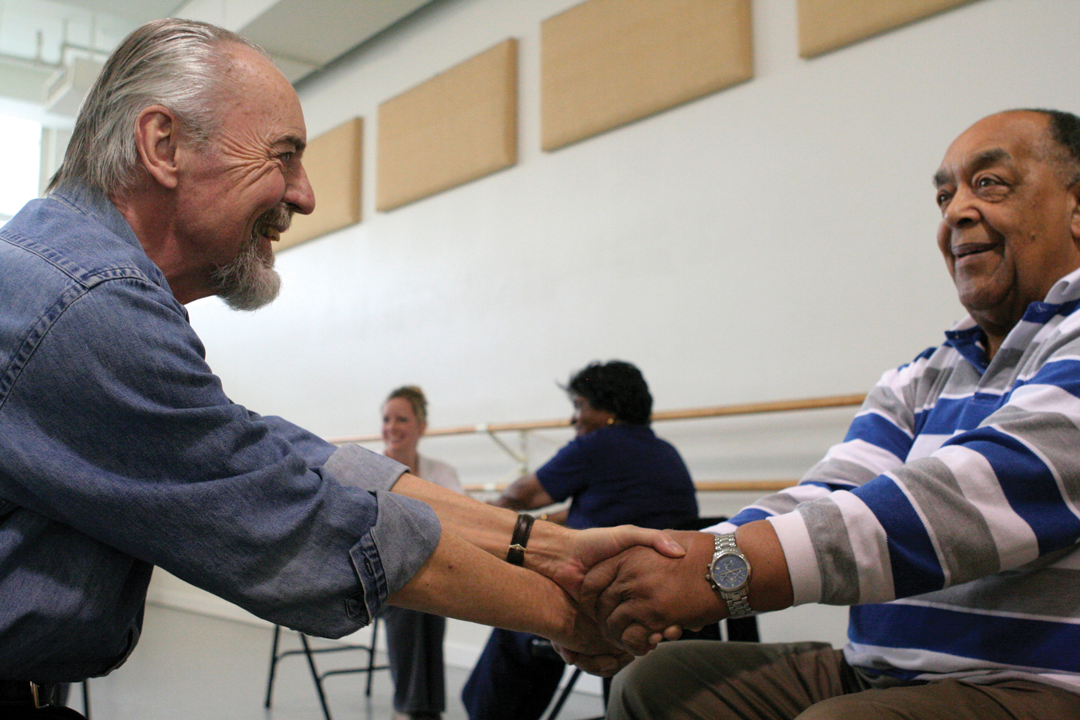
Thanks to legacy donors like Katharine Park, who wanted to reduce loneliness among older adults, our grants have connected aging New Yorkers to health and wellness activities, dance and art classes, and community events.
Unfortunately, many nursing homes that care for older adults are dangerously understaffed and not sufficiently monitored. Avoidable deaths in New York nursing homes during the pandemic prompted state and federal reforms to increase staffing and direct more funds to resident care. Yet many nursing homes still have not complied with new regulations.
“Access to poor-quality care is not access to care.”
“Access to poor-quality care is not access to care,” said Richard Mollot, executive director of the Long Term Care Community Coalition. Trust support helped the Coalition advocate for improved oversight of care facilities during the pandemic, speaking to the media and testifying at legislative hearings. It published a study in 2024 which found that, despite federal requirements that medical directors oversee the clinical care of residents, more than one-third of nursing homes reported no onsite medical director presence whatsoever.
Today, the Coalition is working to ensure hard-won reforms get enforced, and that the standard of care for residents is improving.
Ending 24-hour shifts
Home health care workers offer safety, companionship, and care for aging New Yorkers. Despite the valuable service they provide, this workforce—comprised mostly of immigrant women of color—faces grueling hours and poor wages.
Many home health care agencies require employees to work 24-hour shifts, while paying them for only 13 of those hours and deducting 11 for sleeping and eating. But patients often require around-the-clock care, and few workers receive the breaks or compensation they are entitled to. Faced with the threat of homelessness or losing health insurance, many of these workers are calling for fair labor practices and a stronger social safety net for all New Yorkers.
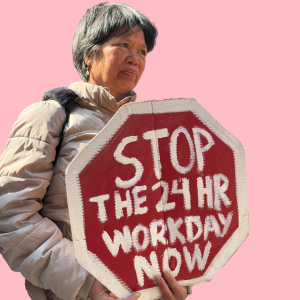
With funding from The Trust, National Mobilization Against Sweatshops (NMASS) partnered with the Chinese Staff & Workers Association, Flushing Workers Center, and Women Against Racist Violence to bring home health care workers together to eliminate their 24-hour shifts.
While legislation has not yet passed, the organizing is changing the industry standard. The workers’ pressure has caused some employers to phase out 24-hour shifts.
“I’ve seen how our unity is our strength,” said NMASS member Luz Estrella. “I want this justice for my grandchildren. I want to make things right for them.”
***
Inspired by what you read? Join us to make a difference. Give to the featured nonprofits directly or through a fund at The Trust. Contact us to learn more 1-(833)-4YOURNY or giving@thenytrust.org.
